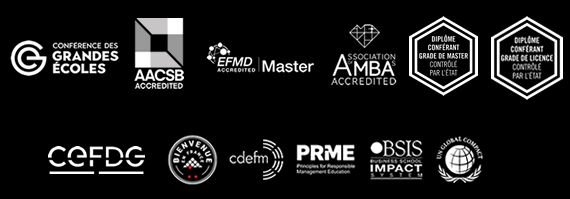Nancy Blay, EMLV alumni from the class of 2013 (Corporate Finance, Master in Management), co-authored The Lifeblood of Inland NSW. This report highlights the socio-economic and cultural value of rivers in the Murray–Darling Basin and calls for structural reforms in water management.
The project bridges financial expertise and environmental challenges, demonstrating how corporate finance tools can support community resilience and sustainability.
From Paris La Défense to Inland New South Wales
Graduated from the EMLV Corporate Finance programme in 2013, Nancy Blay built her career on a strong foundation of financial analysis, risk management, and strategic advisory skills. Her background became instrumental when working on a report addressing water management issues in the Murray–Darling Basin, a region critical to inland New South Wales and beyond.
A Report at the Crossroads of Economy and Environment
Titled The Lifeblood of Inland NSW: The Socio-Economic and Cultural Importance of Healthy Rivers, the document offers a multidimensional view of the impact of declining river health.
Co-authored with the Nature Conservation Council NSW, the study connects water management to cultural identity, community well-being, and economic stability.
Rather than treating river health as a purely environmental matter, the report introduces a socio-economic lens. This perspective highlights how reduced water flows directly affect livelihoods, agriculture, and regional economies, while also weakening community resilience.
The Reach and Impact of the Findings
Since its release in early June, the report has achieved significant media visibility. It featured in national radio coverage, appeared in 31 commercial news excerpts, 16 ABC news bulletins, and was the focus of a long-form ABC interview broadcast from Broken Hill.
Such traction demonstrates both the urgency of the topic and the relevance of its findings. For many communities, the decline of river ecosystems is not an abstract problem but a tangible challenge that affects employment, cultural practices, and quality of life.
Key Recommendations for Change
The report sets out a clear roadmap for policymakers and stakeholders:
- Restore environmental flows across the Murray–Darling Basin.
- Recognise and enshrine Indigenous water rights.
- Invest in fair, community-led transitions to more sustainable practices.
These recommendations align environmental restoration with economic justice, reflecting a systems-thinking approach rooted in practical solutions.
Finance as a Tool for Sustainability
By drawing on her training in corporate finance at EMLV, Nancy Blay contributed to shaping the analytical framework of the report.
The Corporate Finance programme at EMLV prepares graduates to evaluate capital structures, financing sources, and risk management strategies. In this case, these competencies supported the design of proposals balancing ecological sustainability with financial and social viability.
The Corporate Finance major encompasses modules such as financial analysis, corporate valuation, financial engineering, and auditing in the banking and insurance sectors. It also integrates emerging fields, such as blockchain applications in finance, and offers Bloomberg certification, ensuring that graduates are equipped to navigate complex challenges.
A Broader Relevance for Business Graduates
This project demonstrates how skills typically associated with corporate finance can be applied effectively in roles beyond traditional banking or investment. Applying financial reasoning to social and environmental challenges creates pathways for innovative solutions and broadens the scope of business education.
For EMLV, it is an example of how graduates can mobilise their expertise to contribute to pressing global debates, from sustainability transitions to inclusive economic growth.
The report The Lifeblood of Inland NSW demonstrates the growing importance of cross-disciplinary approaches that unite finance, sustainability, and community resilience. It highlights the role of business graduates in shaping solutions that are not only economically sound but also socially and environmentally relevant.
Learn more about EMLV’s Corporate Finance programme (Master in Management)






















